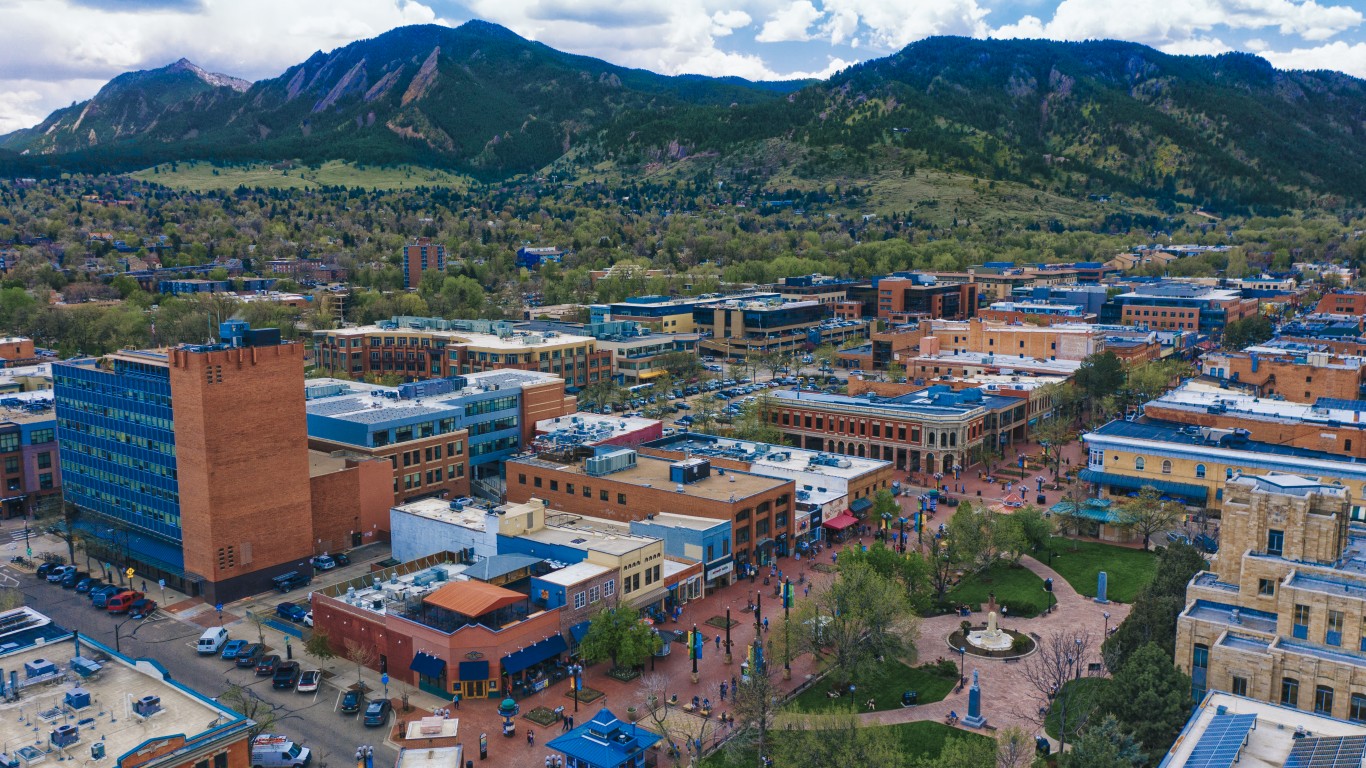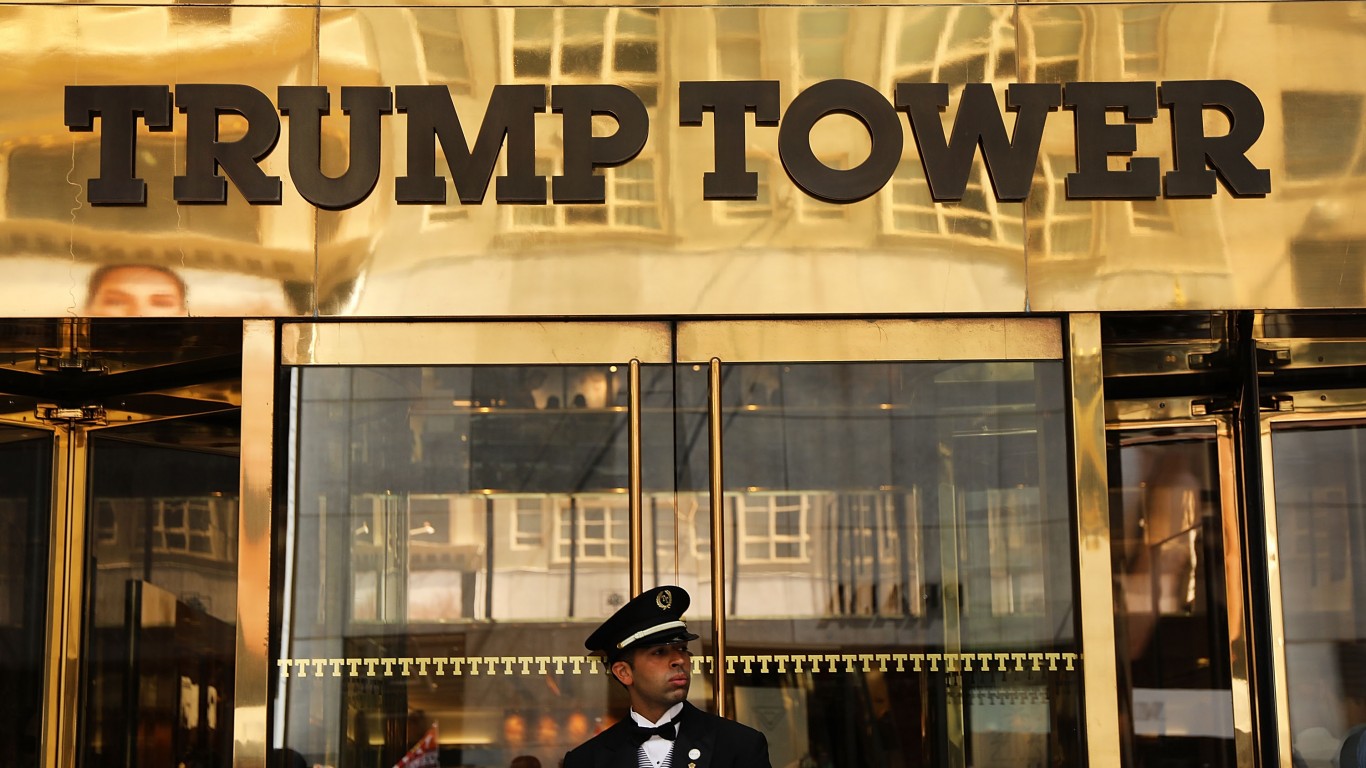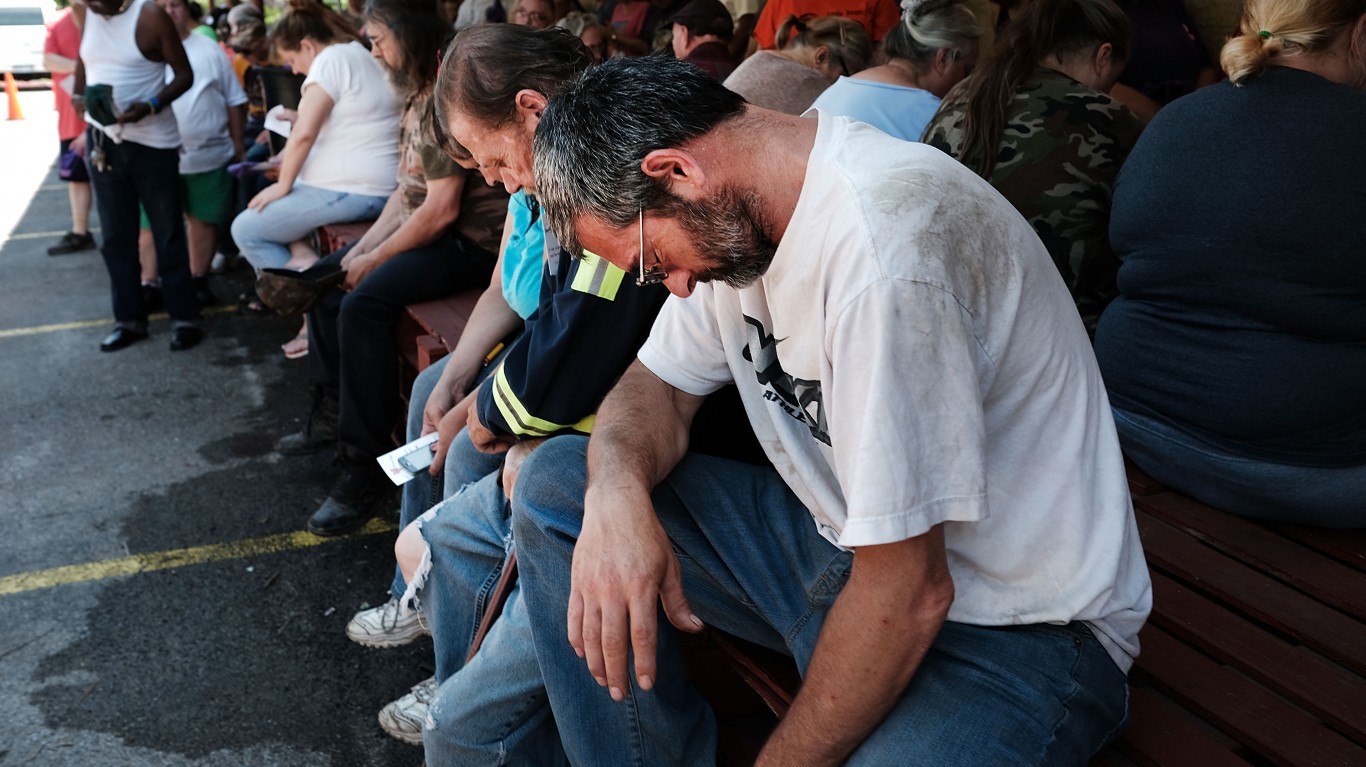
How much does education matter in America? The U.S. government and researchers tend to look at education in tiers. At the lowest level are those who did graduate from high school, followed by those who did, then those with some college education, and then those with a bachelor’s degree. The reason for these tiers is that they are generally attached to other demographics. People with low education rates are more likely to live in poverty, have low incomes, poor health, and poor access to healthy food. Highly educated people tend to be healthier, make more money, and even live longer.
The average weekly wage for a college-educated worker in the United States is about 67% higher than it is for those with no more than a high school diploma. Additionally, college-educated Americans are less than half as likely to be unemployed as those who only finished high school.
Using education data from the U.S. Census Bureau, 24/7 Wall St. identified the most educated metro area in the United States. In several of the metro areas we examined, over half of the adult population have at least a bachelor’s degree.
Many of the metro areas we reviewed, such as Boston, New York, and San Francisco, are economic hubs with major industries that have been attracting college-educated professionals for decades. Others, such as Ithaca, New York; Raleigh, North Carolina; and Charlottesville, Virginia, are home to major research universities. These areas have large graduate school populations and often a concentration of employers seeking graduates for high-skill jobs.
The most educated metro in America is Boulder, Colorado. Here are the details:
> Adults with at least a bachelor’s degree: 64.8%
> Median earnings, all workers: $51,446 — 12th highest of 384 metros
> Median earnings, bachelor’s degree holders: $57,394 — 62nd highest of 384 metros
> Estimated unemployment rate, all workers: 2.5% — 95th lowest of 384 metros (tied)
> Estimated unemployment rate, adults with at least a bachelor’s degree: 2.4% — 244th lowest of 384 metros (tied)
Our methodology: To determine America’s most educated metro area, 24/7 Wall St. reviewed one-year estimates of the percentage of adults 25 years and over with at least a bachelor’s degree from the U.S. Census Bureau’s 2019 American Community Survey.
We used the 384 metropolitan statistical areas as delineated by the United States Office of Management and Budget and used by the Census Bureau as our definition of metros.
All 384 metros were ranked by their bachelor’s degree or higher attainment rate. Since many metros cross state lines, the metro was assigned to the state of its first-listed principal city.
Additional information on the median earnings for adults 25 and over with earnings that hold a bachelor’s degree, median earnings for adults 25 and over with earnings for all levels of educational attainment, unemployment rates for the 25- to 64-year-old population that have at least a bachelor’s degree, and unemployment rates for the 25- to 64-year-old population for all educational attainment levels are also one-year estimates from the 2019 ACS.
Click here to read about the most-educated metros in the country.
Are You Ahead, or Behind on Retirement? (sponsor)
If you’re one of the over 4 Million Americans set to retire this year, you may want to pay attention.
Finding a financial advisor who puts your interest first can be the difference between a rich retirement and barely getting by, and today it’s easier than ever. SmartAsset’s free tool matches you with up to three fiduciary financial advisors that serve your area in minutes. Each advisor has been carefully vetted, and must act in your best interests. Start your search now.
Don’t waste another minute; get started right here and help your retirement dreams become a retirement reality.
Thank you for reading! Have some feedback for us?
Contact the 24/7 Wall St. editorial team.




